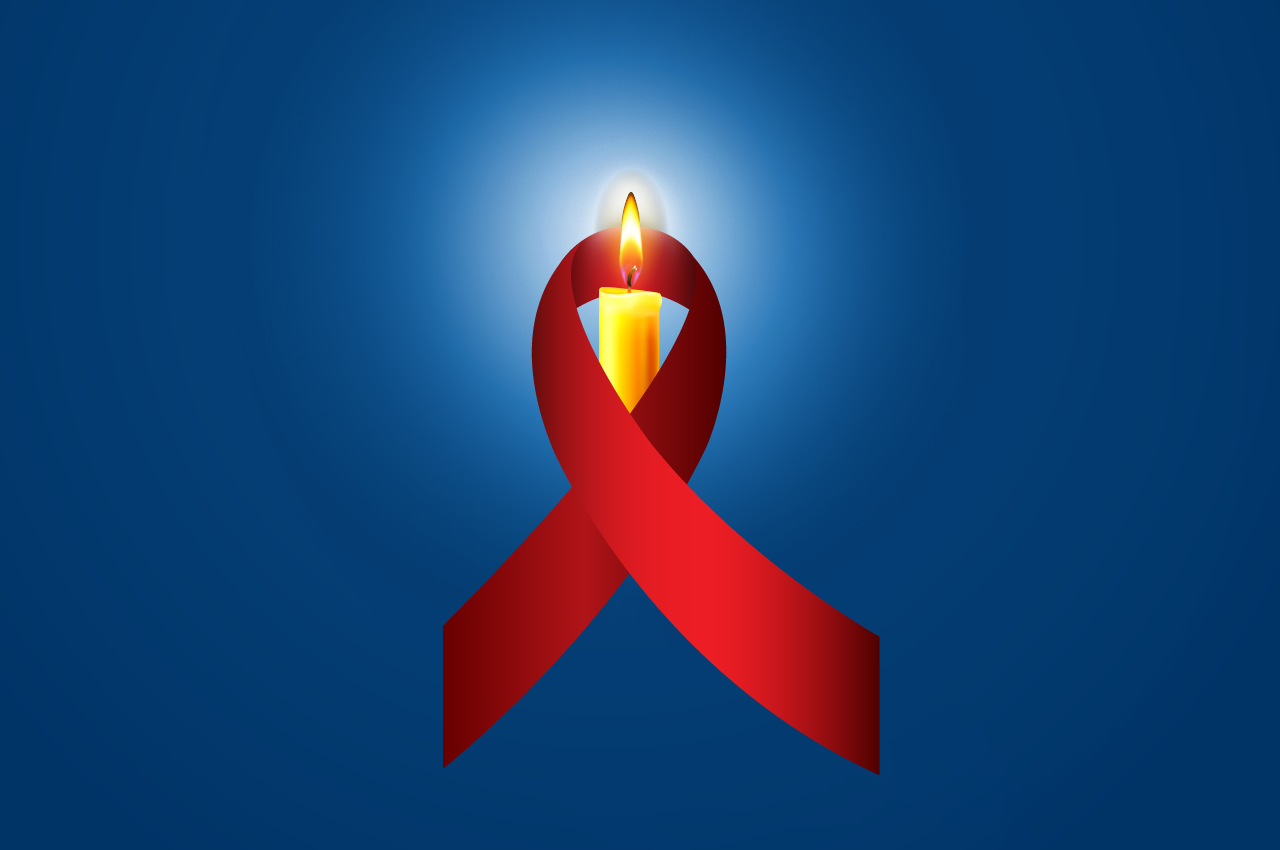On the third Sunday of May, light a candle for everyone whose life has been touched by Aids. Just like a single candle can push back the dark, every individual has a role to play in building awareness and acceptance.
It has been 40 years since the first International Aids Candlelight Memorial was held in 1983. Back then, it was the darkest years of the epidemic – the disease was mostly fatal and not fully understood. Thankfully, we’ve come a long way since: antiretroviral medicine now makes it possible to live a long and healthy life. What’s more, people with HIV can have fulfilling relationships and become parents with effectively no risk of transmitting the virus.
And yet people with HIV and Aids still face stigma. Fears continue to abound and someone with the virus or disease can easily feel isolated. That’s why this memorial, held on 21 May in 2023, is so vital. It’s a powerful symbol of hope and remembrance. For each of us, it’s an opportunity to stand with others, to share stories, to support people who live with HIV and to remember those who have passed away due to Aids.
Coming together to light a candle
Around the world there are almost 38 million people living with HIV today. It’s a reminder that it continues to be a global health crisis that affects millions of people. About one in every seven South Africans lives with HIV – if not you, then someone close to you: a family member, friend, colleague or acquaintance. For so many people to go through life feeling alone would be a tragedy. When we stand side by side and light candles of hope, we’re sending a message that we’re in this together, which is vital for reducing stigma.
The root of the issue
Why is there stigma around HIV and Aids? The negative attitudes and beliefs about people with HIV are rooted in fear. Many of our ideas about the virus and Aids go back to the early 1980s when knowledge and treatments were limited. Even four decades later, outdated beliefs about HIV transmission and living with the virus continue to exist.
It’s important to combat stigma because negative attitudes, behaviours and judgements about HIV affect all our lives. People with HIV may become discouraged from learning their status, accessing treatment, staying in care or simply talking about it. The rest of society misses out on honest, close and rewarding relationships with far too many people.
Build your community
How do you go about commemorating the International Aids Candlelight Memorial? From a candlelit meal with a few friends and family members to thousands of people marching through town holding lit candles, the event can be anything the community needs or wants it to be. Visit local government websites to find official events or organise your own memorial if you are moved to do so. It doesn’t have to be a complex ceremony, the mere act of marking this day raises awareness and builds acceptance.
Watch your words
You might not even realise that you are carrying hidden prejudices around. Did you know that the way you talk about the disease can influence the way others feel? Certain words and expressions can be problematic because they seem to place blame or aren’t precise. For example, talking about “an HIV sufferer” emphasises the disease and makes the person seem powerless. Learn which words have negative meanings and which are empowering – be intentional and mindful when speaking about HIV and Aids.
Stop the stigma
Whether through fear or simply not knowing better, sometimes people treat others with HIV differently. They might behave as if people with HIV are contagious or make moral judgements. If you see stigmatising behaviour, change the script – model positive ways to behave and share the basics about HIV. Because it can be difficult to think on your feet, take a look at these typical scenarios and suggested responses so you are prepared to act.
By knowing the correct facts, getting involved in events such as the Candlelight Memorial and speaking up for people with HIV, you will be making the world a more compassionate place.
References
- https://gnpplus.net/project/international-aids-candlelight-memorial/
- https://nationaltoday.com/international-aids-candlelight-memorial/
- https://www.news.uct.ac.za/article/-2017-11-23-three-decades-on-stigma-still-stymies-hiv-prevention-and-treatment
- https://www.hiv.gov/hiv-basics/overview/making-a-difference/standing-up-to-stigma/



